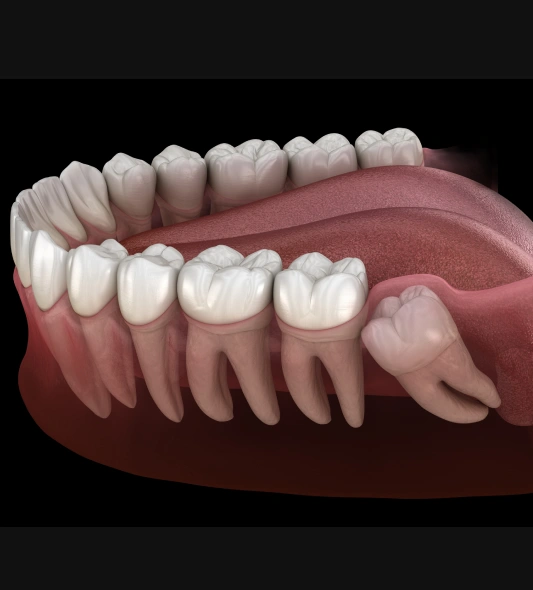
Why Dentists Recommend Removing Wisdom Teeth
Wisdom teeth are the last set of molars to appear, usually emerging in the late teens or early twenties. While some people experience no issues, many others encounter problems when these teeth grow at awkward angles, push against neighboring teeth, or remain trapped beneath the gums. Such issues can lead to pain, infection, and even long-term damage to your bite.
Early evaluation at Rocklin Comprehensive Dentistry in Rocklin, CA allows your dentist to determine whether removal is necessary before complications arise. Taking a proactive approach helps protect your oral health, prevent crowding, and minimize the risk of problems later on.
How to Tell If You Need Wisdom Teeth Removed
- Pain or soreness at the back of the mouth
- Jaw stiffness or swelling
- Red, tender, or inflamed gums
- Persistent bad breath or an unpleasant taste
- Teeth shifting or feeling crowded
The Procedure for Removing Wisdom Teeth
The first step is a comprehensive dental exam, often including digital X-rays, to evaluate the position of your wisdom teeth. At Rocklin Comprehensive Dentistry in Rocklin, CA your dentist will review the images with you, explain whether removal is recommended, and answer any questions you may have.
On the day of the procedure, local anesthesia or sedation may be provided to ensure your comfort. The type used depends on your needs and the complexity of the case. Once the area is fully numb, your dentist or oral surgeon carefully removes the tooth. Impacted teeth may require a small incision, while fully erupted teeth are usually easier to extract.
After the extraction, gauze is placed to control bleeding, and you’ll receive detailed instructions for at-home care. Wisdom tooth removal is a routine procedure, and most patients are able to resume light activities the following day.
Benefits of Getting Your Wisdom Teeth Removed
- Preventing crowding that can shift nearby teeth
- Reducing the risk of gum infection and tooth decay
- Protecting the bone and gum tissue around your molars
- Relieving persistent pain or pressure in the jaw